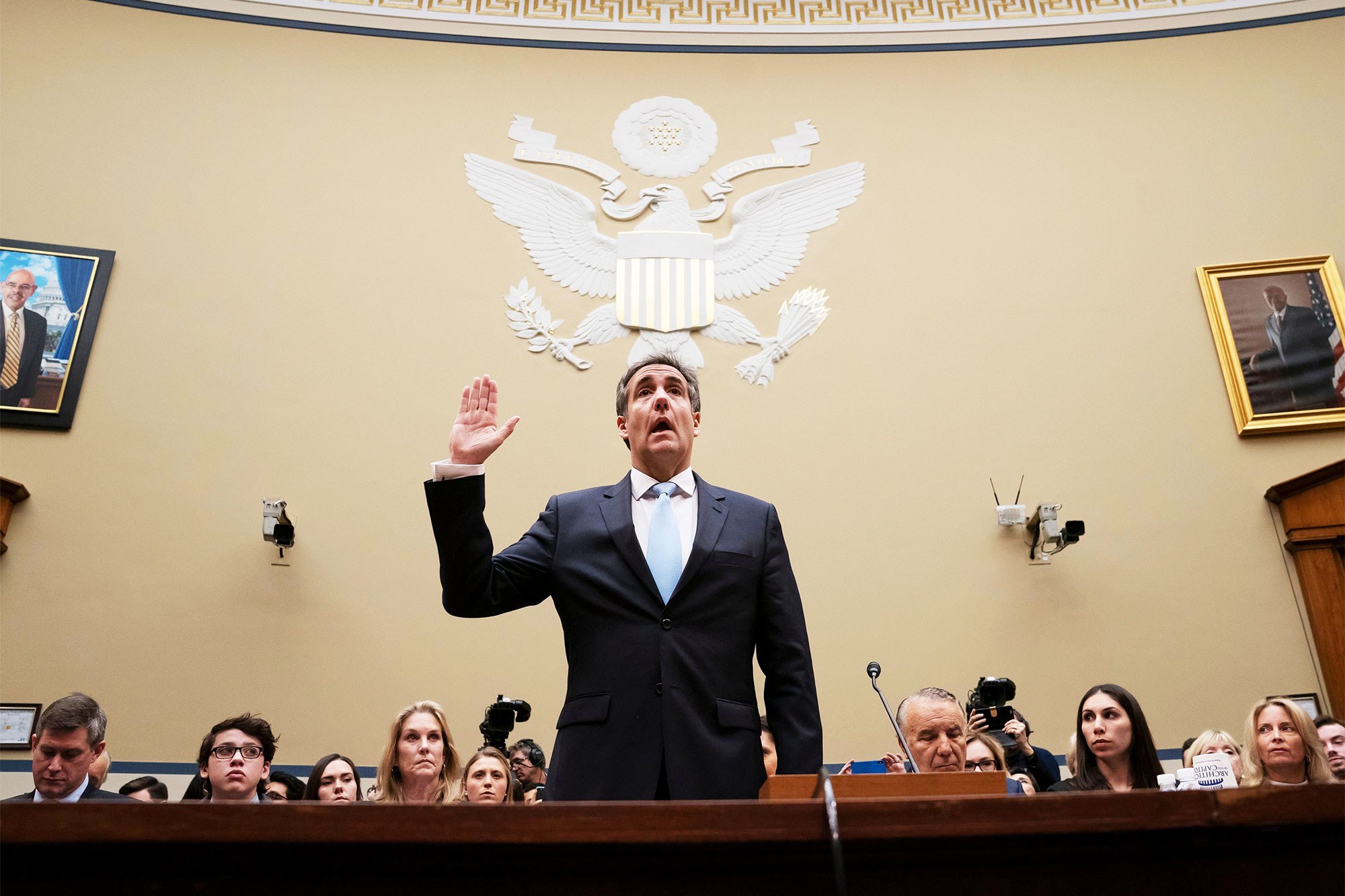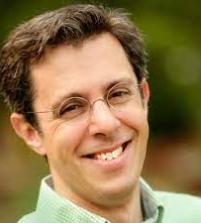Michael Cohen, Never Again
As I stood at my computer at 6 a.m
 As I stood at my computer at 6 a.m. last Thursday morning reading Michael Cohen’s prepared statement to the House Oversight and Government Reform Committee, one passage in particular jumped out at me: “I have always tried to live a life of loyalty, friendship, generosity, and compassion—qualities my parents ingrained in my siblings and me since childhood,” Cohen wrote (and later spoke). “My father survived the Holocaust thanks to the compassion and selfless acts of others. He was helped by many who put themselves in harm’s way to do what they knew was right. That is why my first instinct has always been to help those in need. Mom and Dad . . . I am sorry that I let you down.”
As I stood at my computer at 6 a.m. last Thursday morning reading Michael Cohen’s prepared statement to the House Oversight and Government Reform Committee, one passage in particular jumped out at me: “I have always tried to live a life of loyalty, friendship, generosity, and compassion—qualities my parents ingrained in my siblings and me since childhood,” Cohen wrote (and later spoke). “My father survived the Holocaust thanks to the compassion and selfless acts of others. He was helped by many who put themselves in harm’s way to do what they knew was right. That is why my first instinct has always been to help those in need. Mom and Dad . . . I am sorry that I let you down.”
Cohen’s testimony was remarkable on a number of levels, but I found this appeal to the Holocaust insightful, for it bore out, simultaneously, two opposing moral impulses emerging from the Shoah. These can perhaps best be observed in competing interpretations of a signature catchphrase of post-Shoah consciousness, “Never Again.”
In the first interpretation, Never Again means “Never Again—for us.” In this formulation, the lesson of the Holocaust, for Jews at any rate, is that we can’t depend on anyone else to defend us; we have to take care of ourselves. This fuels projects to amass power to be used, first and foremost, for our own self-preservation, whether through efforts to strengthen Jewish identity and institutions in America or through the building of a Jewish nation-state in the land of Israel. In the words of the ancient sage, Hillel the Elder, “If I am not for myself, who will be for me?”
The second logic of Never Again vis-à-vis the Shoah, however, runs orthogonally to the first. In this interpretation, it means “Never Again—for anyone.” The impulse of this more universal Never Again is towards human rights activism, dialogue and reconciliation, and the more vulnerable posture of compassion and peacemaking. It also gestures toward a Jewish self-image, on both the individual and collective levels, as emphatically not what the Nazis were—where they were cold, heartless, and morally numb, we will be warm, gracious, and morally sensitive. To quote Hillel again, “When I am for myself, what am I?”
It should come as no surprise that both of these impulses exist paradoxically and simultaneously in the hearts of individual Jews and in the ethos of Jewish collectives. After all, Hillel’s questions exist side-by-side in the Mishnah (Avot 1:14). But it was nonetheless striking to see the paradox here in the testimony of the President’s personal lawyer and “fixer.” Cohen exemplifies the first logic in his self-described fierce loyalty to family and friends. “As many people that know me best would say, I am the person they would call at 3 AM if they needed help,” Cohen said. “I proudly remember being the emergency contact for many of my children’s friends when they were growing up because their parents knew that I would drop everything and care for them as if they were my own.” This is Cohen the bulldog, the papa bear, the Partisan, defending his people from their enemies.
And yet Cohen’s major appeal to the congressional committee, and to the broader public, was rooted in the second logic of the Shoah. As Cohen said in the penultimate line of his prepared remarks, “I may not be able to change the past, but I can do right by the American people here today.” Here Cohen was presenting himself as the selfless individual who, with nothing left to lose because he has already lost everything, decides to do the right thing and turn state’s evidence. This was, presumably, who Cohen imagined his parents raised him to be—more like the generous souls who helped his father survive the Holocaust than those who stood idly by or, worse (or perhaps not worse), who actively perpetrated evil.
Hillel’s first two questions are followed by a third, “If not now, when?” One reading of the placement of this final question is to drive home a reality about paradoxes, namely that while multiple truths can theoretically exist simultaneously, the reality we face as humans is that we must choose which truth we will enact in any given moment. There is no deferring the choice. (Or perhaps there is. As one brilliant college student interpreted the text to me years ago, “If now isn’t the right time, you kinda have to know when the right time is.”) In any case, we seem compelled to find ways to author our story in the moment, and to narrate our history when looking retrospectively, that align with the image of ourselves we want to see in our minds. For Michael Cohen, that image was, for many years, that of a bulldog who protected his own at all costs. That may well still be part of what’s motivating him. But I tend to believe that children of survivors don’t invoke the Holocaust cheaply, even the Michael Cohens of the world. In his appeal to the Shoah, it could be that Cohen, like so many before him, has found a moral backstop.
Image: Michael Cohen is sworn in to testify before the House Oversight and Reform Committee on Capitol Hill. (Photo Credit: J. Scott Applewhite | AP)
 Author, Joshua Feigelson, is Dean of Students at the Divinity School. Author, Joshua Feigelson, is Dean of Students at the Divinity School. |
Sightings is edited by Joel Brown, a PhD student in Religions in America at the Divinity School. Sign up here to receive Sightings via email. You can also follow us on Facebook and Twitter.


